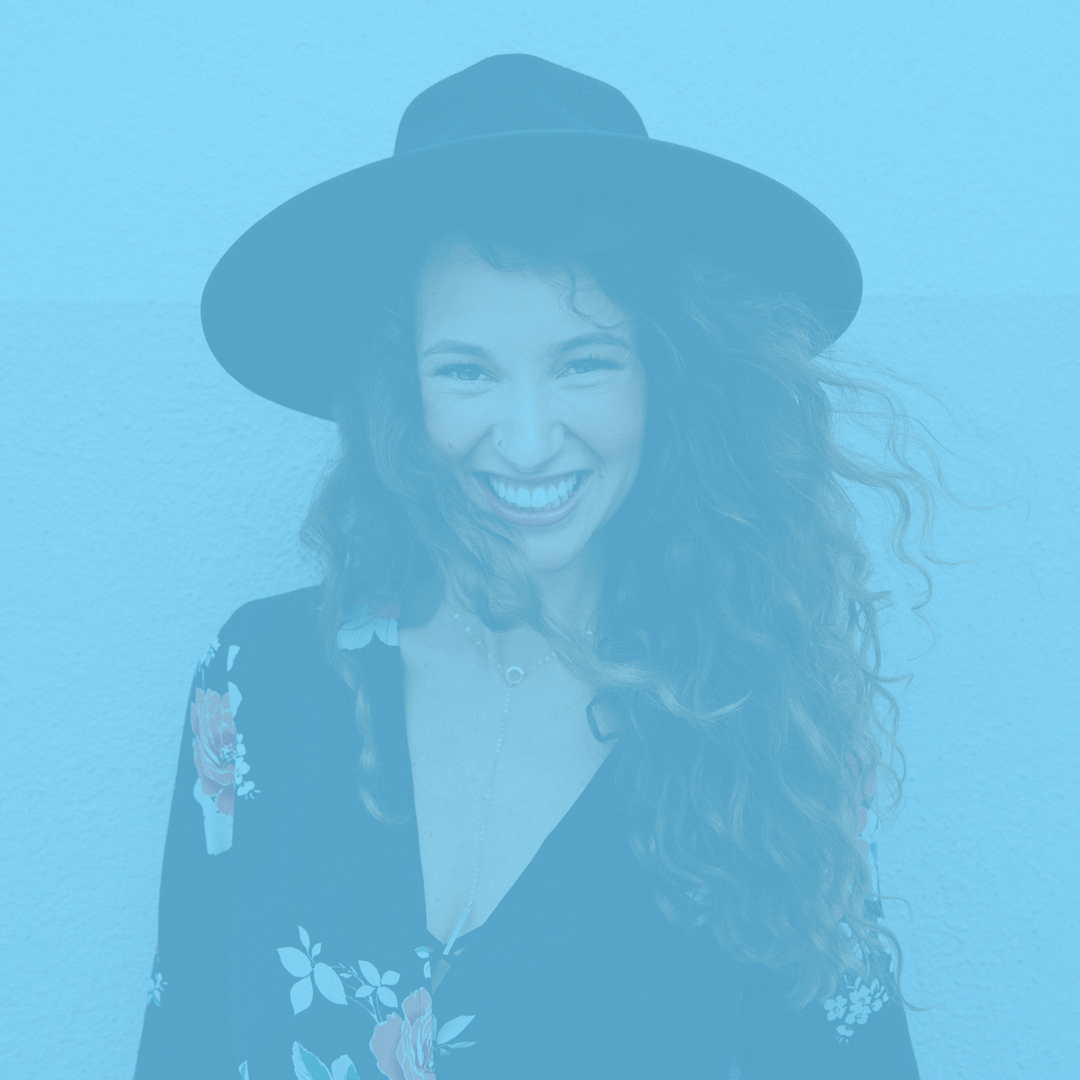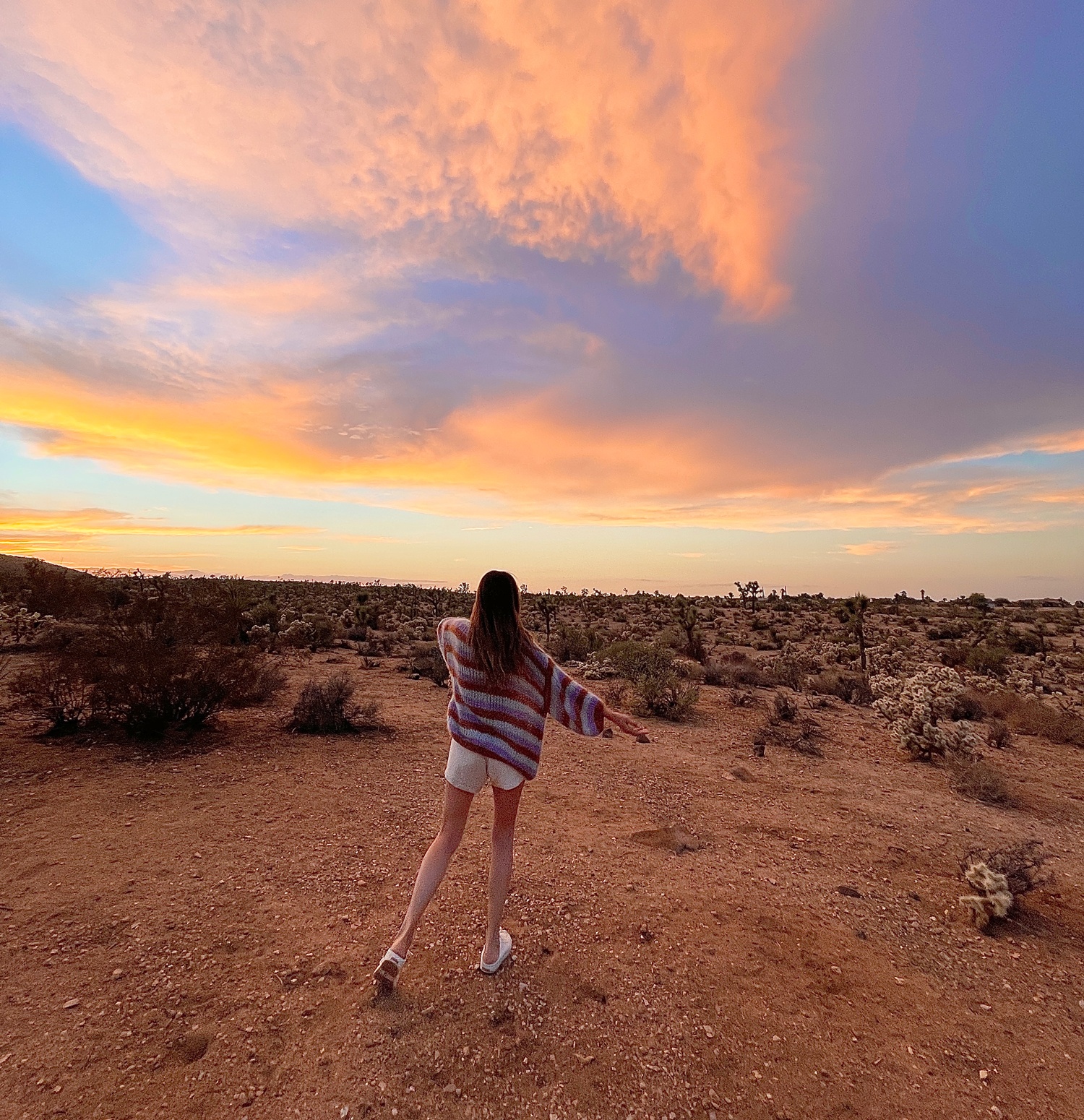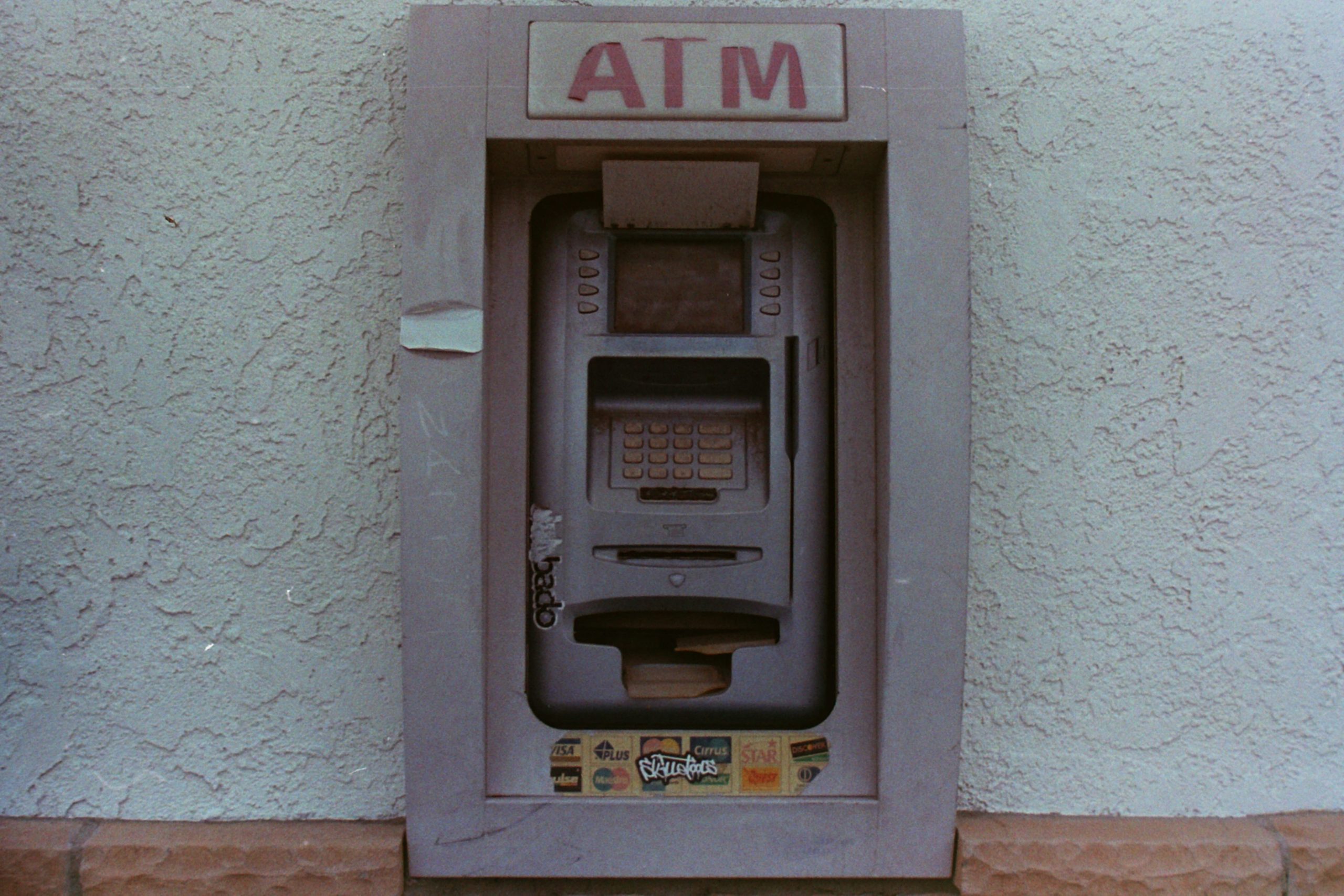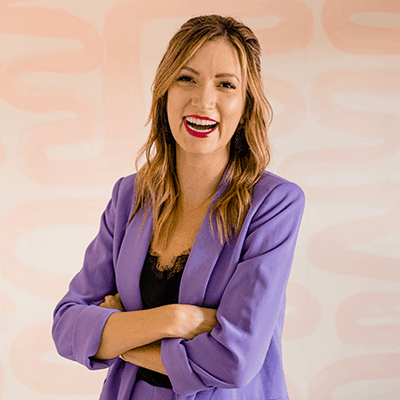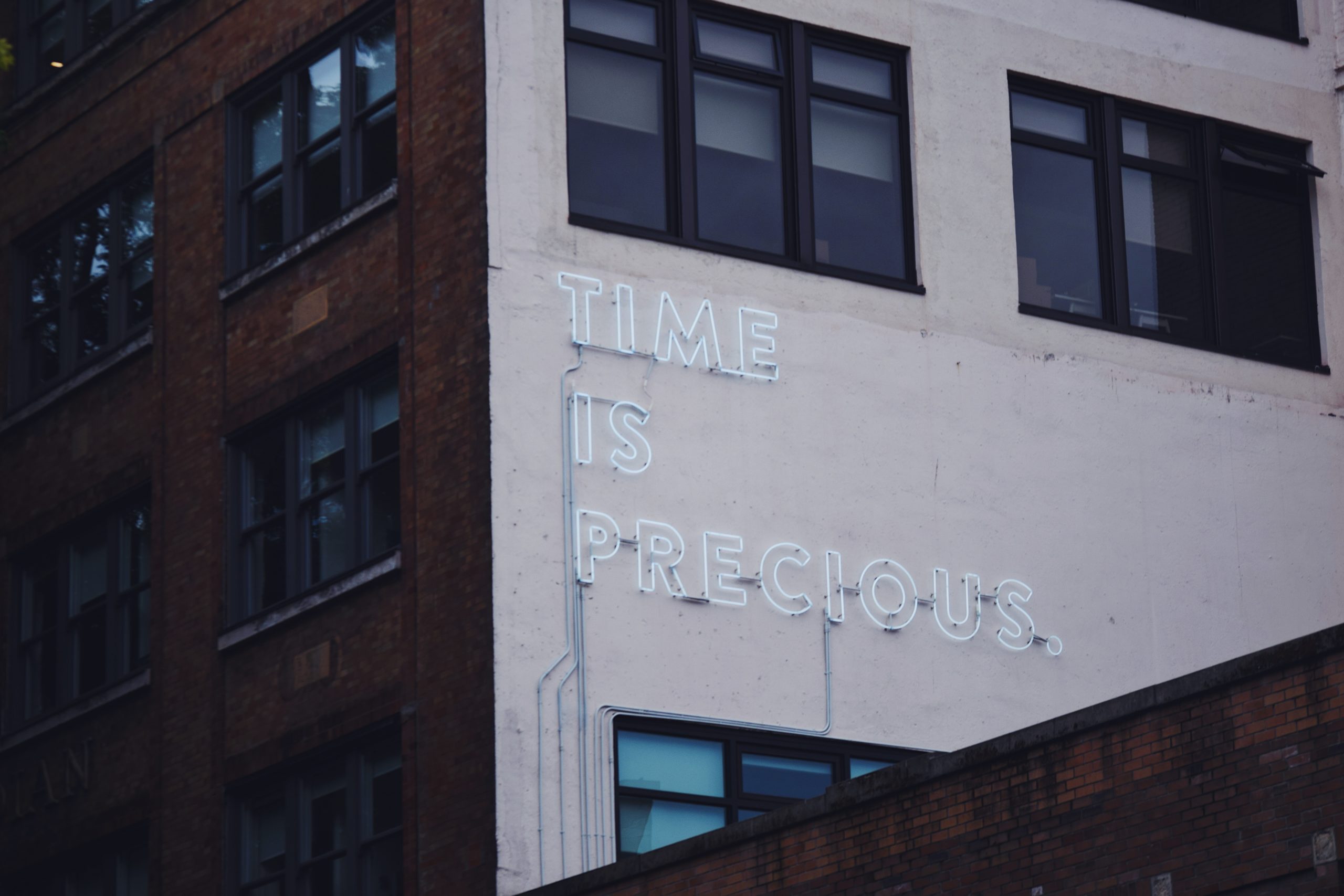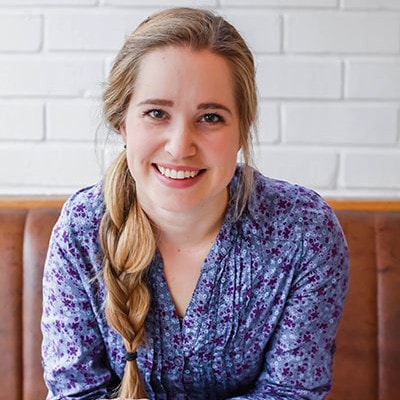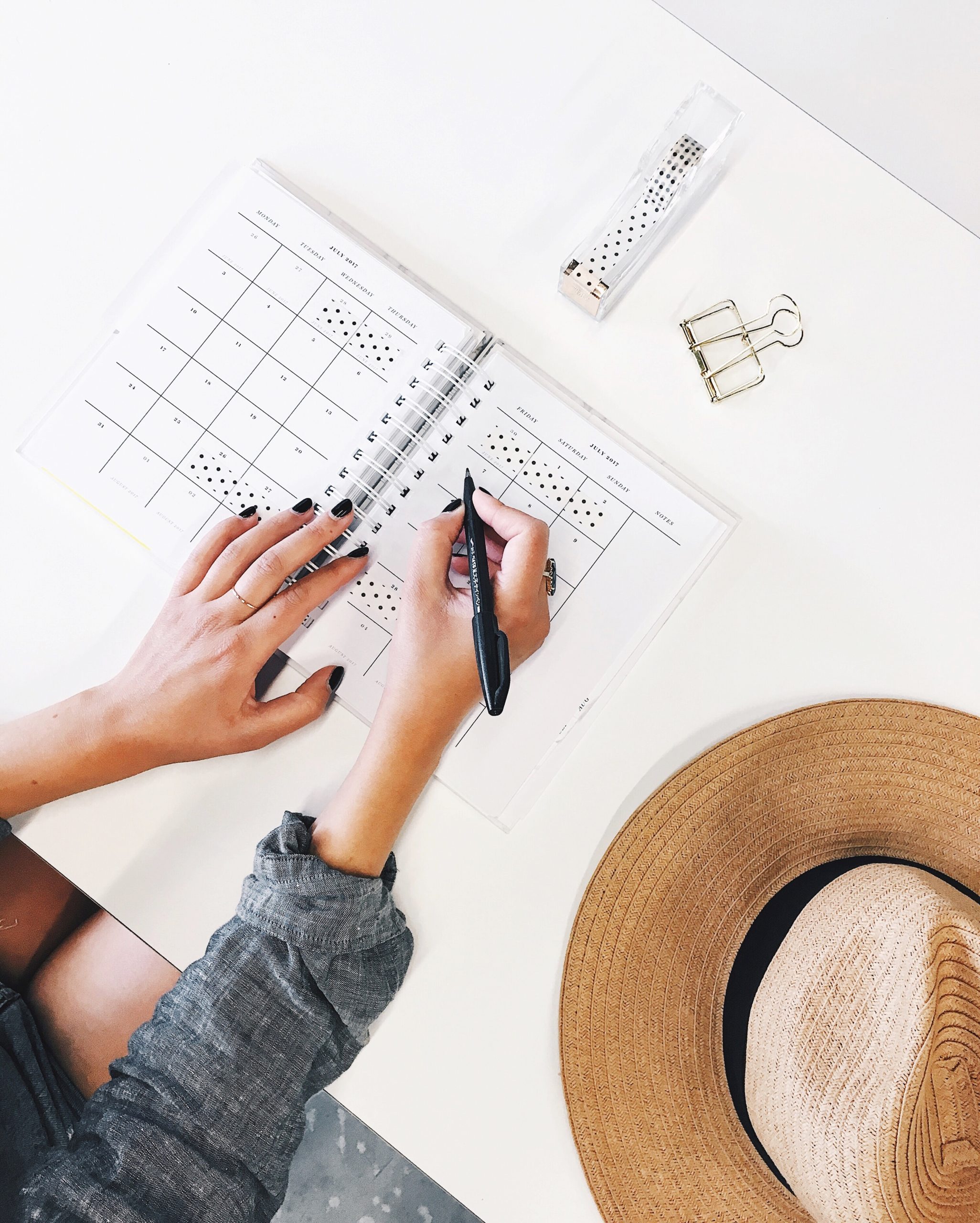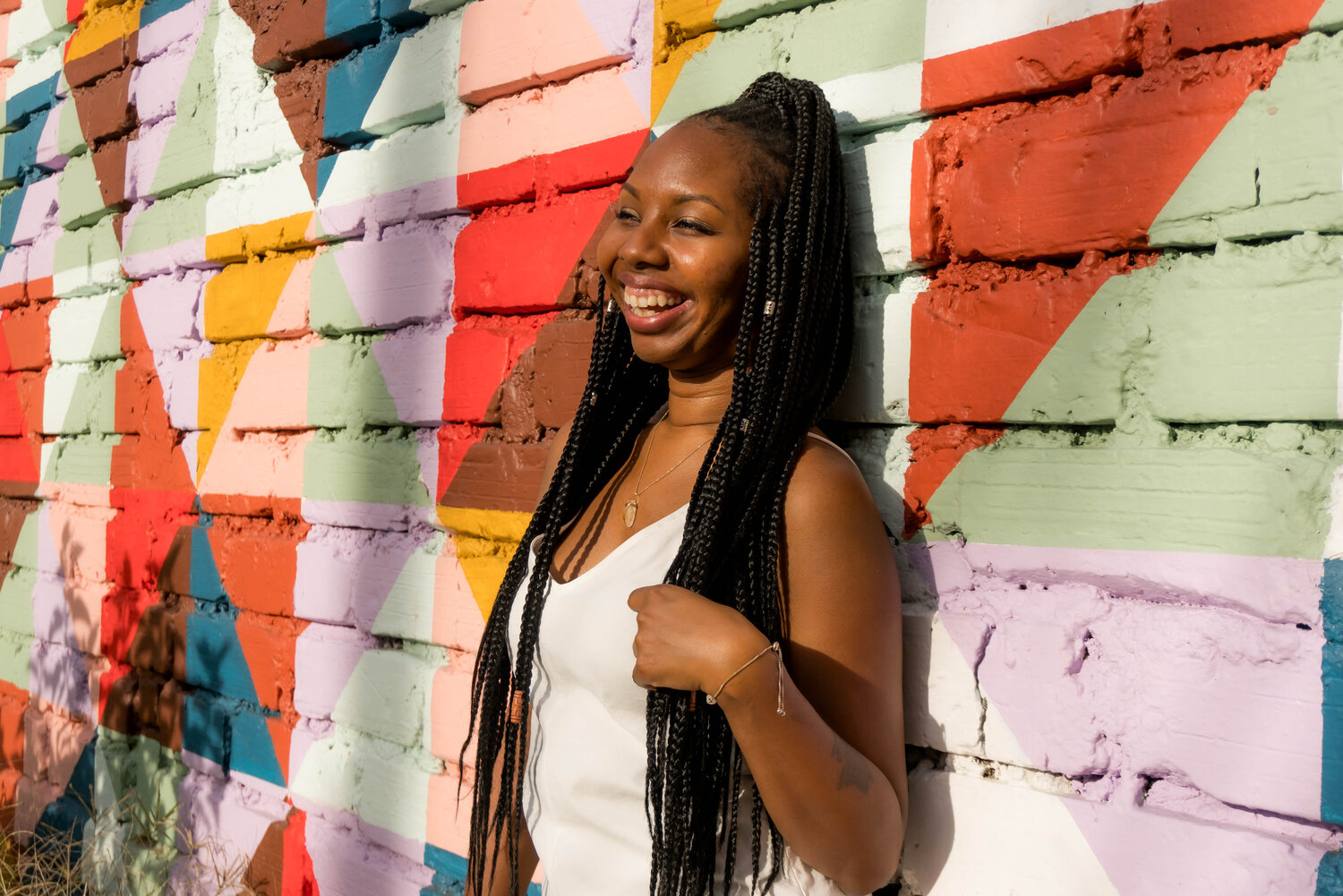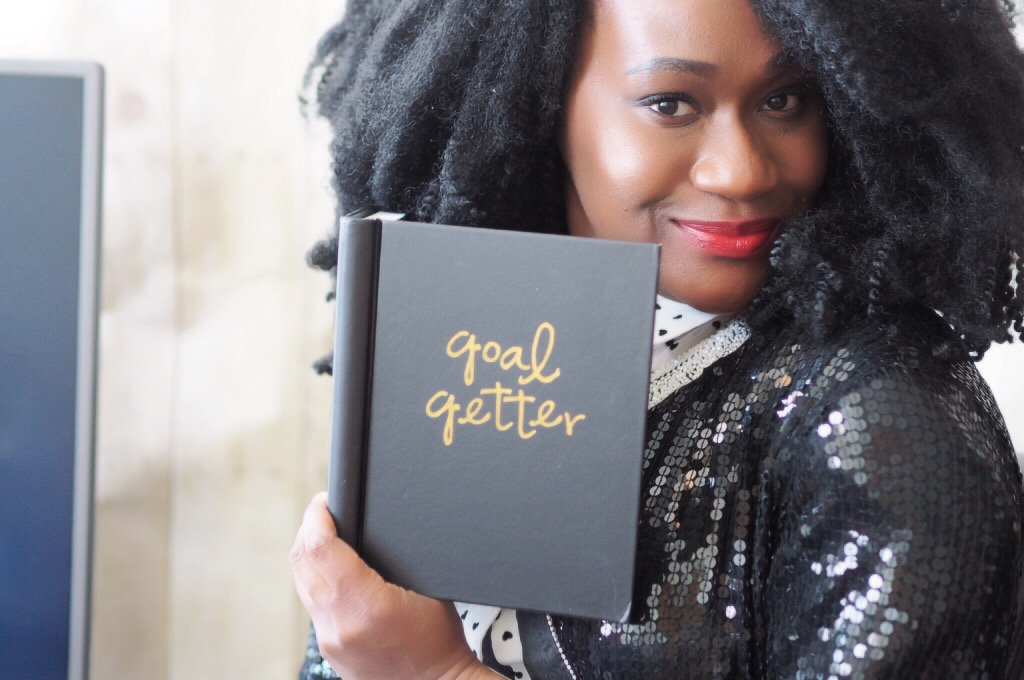Today’s guest invites you to live your truth, befriend your emotions, and express your talents to the world.
Amber Rae is an author, artist and speaker – and she’s someone I deeply admire for her creative, free-spirited approach to life and business. She blends raw, personal storytelling with actionable aha! moments and has reached more than 5 million people in 195 countries.
In this episode, we talk about some of the important lessons from her book, Choose Wonder Over Worry: Move Beyond Fear and Doubt to Unlock Your Full Potential. She opens up about her relationships, career, and past desire to always achieve more and more… and how that mentality never seemed to bring her joy.
I especially love the specific techniques Amber shares that helped her transcend her fears, feel happier, and stop getting caught up in worry and anxious thoughts.
And two quick notes before you dive in:
We have a new Pursuit with Purpose community, where you can connect with other listeners. We heard from so many of you that you LOOOVE the podcast, but don’t have many people in your lives you can talk to about the things you learn here. Join the group here and you can take part in our weekly discussions to dive deeper into each episode!
And guess what? Pursuit with Purpose is 1 year old! To celebrate, I’m giving away some pretty awesome prizes. For your chance to win a Pursuit With Purpose prize pack, all you have to do is subscribe to the podcast and leave a review on iTunes. The giveaway is open until June 29th, 2018, so go leave that review right now!
Now! Are you ready to transform your life, embrace your emotions, and infuse more creativity into every. single. day?
Hit “play” and enjoy!
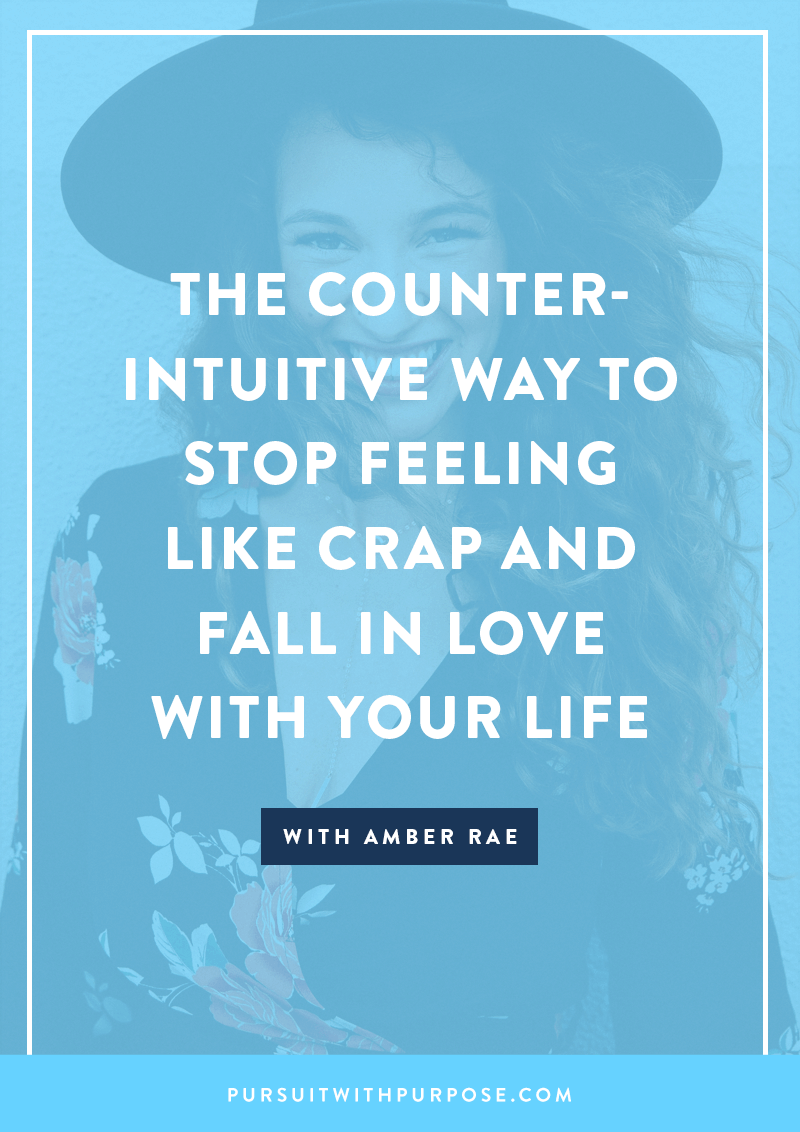
Check out the episode below:
In this episode, you’ll hear about things like…
- The story of Amber’s journey with limiting beliefs, chasing achievements, and toxic relationships.
- Amber’s 3-step process for working through emotions like fear and doubt.
- Amber’s advice for anyone who is living the life they thought they were “supposed to,” but isn’t feeling fulfilled from it.
- The most profound healing tool that Amber has ever used.
- How the way we interpret events runs our lives. (Hint: the way we interpret events is often very different from what really happens. We make events “mean something,” and that affects how we live.)
Some Questions I ask Amber…
- Why is it so important to honor ALL of your emotions (even the difficult ones), rather than just appreciating the happy ones?
- How did you make the shift from chasing accolades… to focusing on cultivating inner happiness and helping other people do the same?
- What are some of the most common ways that worry shows up?
Links from the interview:
- Amber’s Website
- Choose Wonder Over Worry: Move Beyond Fear and Doubt to Unlock Your Full Potential, by Amber Rae
- Amber on Facebook
- Amber on Instagram
- Amber on Twitter
- Letting Go: The Pathway of Surrender, by David Hawkins
What do you think?
I’d love to hear your thoughts on this episode. Are you feeling more wonder or worry in your life right now?
Here’s how to subscribe + review
Want to be the first to know when new episodes are released? Click here to subscribe in iTunes!
Also, podcast reviews are pretty darn important to iTunes and the more reviews we receive, the more likely we’ll be able to get this podcast and message in front of more people (something about iTunes algorithms?). I’d be extremely grateful if you left a review right here letting me know your favorite part of this episode.
#PursuitWithPurpose
Loving the podcast? I encourage you to use the hashtag #PursuitWithPurpose to show our PWP tribe how you live your purpose everyday. Plus, you’ll get to sift through the hashtag to find other business owners who care about community and connectedness over competition and comparison. And I’ll be reposting some of my favorite images and stories, too. 🙂
Thank you for listening!
Transcript
Read the Interview Transcription HereHey, everyday world changers. I’ve got two very exciting announcements for you today, including a brand new Pursuit with Purpose community and some amazing, free goodies that I’m giving away to a few Pursuit with Purpose listeners. So more on those things in just a second, but first, did you hear that Pursuit with Purpose recently turned one year old? I literally can’t believe that the podcast is already a year old, because for me, it has been just such a beautiful and transformative experience, and really such an honor to interview everybody who’s been a guest on the podcast. Seeing your Instagram stories and your blog posts and emails about the podcast is one of my absolute favorite things each week. It’s something that I look forward to and something that just brings me so much joy and fulfillment. It gives my own life purpose, to be completely honest with you.
So I wanted to read a recent email real quick from a listener named Jessica. It just really warmed my heart. Jessica said, “When I first started listening to Pursuit with Purpose, I would tune in while doing other things and multitasking, but honestly, your episodes are so inspiring that I find myself stopping whatever I’m doing, grabbing my journal and scribbling furiously. By the end, I always feel like I’m ready to run an entrepreneur marathon. Listening in is truly one of the best parts of my week.” Jessica, you are a rock star. That means the world to me. Thank you so much for the sweet words.
Now the first exciting announcement is that if you subscribe to the podcast and you leave a review in iTunes, then you’ll have a chance to win one of my favorite prizes I have ever offered, like $100 Amazon gift card, a custom journal (you know how I love my journaling), Brain Dust, which is this super herb blend that I swear by. I sprinkle it into my morning coffee or tea every day and it really does help me to be more productive. You’re also going to get some bestselling books from some of my favorite authors and some guests that I’ve had on the podcast too, like Mark Manson, Natalie Kogan and Mastin Kipp. So here’s what you got to do. To be entered to win, just go to iTunes, search for Pursuit with Purpose under podcast. Then subscribe right in iTunes and leave a review. So subscribe and review. And then make sure to put your Instagram handle in your review so that we can reach out to you if you do win this amazing giveaway. The giveaway is open until June 29th. So I would say just go leave a review right now. It literally takes like two minutes to do and it helps us so much. Okay, done? Sweet.
The second announcement, oh my gosh, I’m so excited to say this, is that we’re launching a free Facebook group for Pursuit with Purpose listeners. Now I keep hearing from listeners that you guys are loving the information and the stories that you’re getting from the podcast, but you don’t feel like you have a lot of people in your lives that you can talk to about things like meditation or relationship techniques or burnout. I personally just think community is so important in life. I truly feel that humans are wired for connection and when we don’t get that or we’re just not having the kind of connections that we want to create, then life is so much less enjoyable. So I really want you to have a place where you could open up, where you can talk about how you’re pursuing a purpose driven life, and a place where you can meet other people who are on the path to greatness like you are. You can join the group by visiting pursuitwithpurpose.com/community. Now inside this community, we’ll have weekly discussions to dive deeper into each episode. I will also be hosting frequent Facebook Live classes to share more of the behind the scenes of the podcast, my thoughts about certain episodes and more. So we’re even thinking—this is really exciting—about planning in person meet ups with podcast listeners around the world. So freaking fun. It’s going to be amazing you guys. I just already know that this community is going to be one of the most open-minded, conscious, driven, and loving places on the Internet. I would so love to have you there. It’s free to join and you can join by visiting pursuitwithpurpose.com/community.
So a quick recap and then we’ll dig right into today’s episode. First, pause this episode right now, go to iTunes and subscribe and review this podcast. If you do that, you’ll be entered to win a massive prize pack with some of my favorite things. Second, visit pursuitwithpurpose.com/community to join our brand new Facebook community for Pursuit with Purpose listeners. So go do that right now. I’ll wait. Okay, you did it? Okay.
Let’s dig into today’s episode. Today’s guest is someone I deeply admire for her creative, free spirited approach to life and business. Amber Rae is an author, an artist and a speaker whose work invites you to live your truth, befriend your emotions and express your talents to the world in a bigger way. Her writing blends raw, personal storytelling with actionable ah-ha moments, and has reached more than five million people in 195 countries. Now her public art has spread to more than 20 countries and she’s an incredible artist. She’s spoken to and collaborated with brands like Kate Spade, Apple and Amazon. Today, we’re talking about some of the important lessons from her new book, “Choose Wonder Over Worry”. She opens up about her past relationships, her career, and her desire to always achieve more and more, and how that mentality never really seem to bring her joy. She also shares specific techniques that helped her transcend her fears, feel more happy, and not get so caught up in worry and anxious thoughts. If you are ready to transform your life, embrace your emotions, even the “negative ones”, and infuse more creativity into your every day, then this episode is for you.
Melyssa Griffin: Hey, Amber. Welcome to the show.
Amber Rae: Thanks, it’s great to be here.
Melyssa Griffin: I’m so excited to chat with you. So while we get started, I want to talk a little bit about your own journey, because you talk pretty openly about your own limiting beliefs, chasing achievements, working in these high powered jobs, having toxic relationships. Can you take us a little bit on that journey with you, a little peek behind the curtain?
Amber Rae: Yeah. So if you would have met me a decade ago, I would have been climbing the ranks in my career, checking off all the boxes of what I thought it meant to live a successful and happy life. Truly, I was miserable on the inside. I was popping Adderall to stay thin and get more done, because then I thought I would be approved of and loved and worthy and enough. Like you said, I was dating these emotionally unavailable men. My life was just a little bit in chaos. The thing was, is that I was afraid for anyone to see that mess or see that chaos. And so I lived this mirage and wore this mask of this perfect and everything is okay life. And because I was unwilling to look at my own uncomfortable emotions or let anyone else see it, that created a lot of disarray.
Melyssa Griffin: Right. So now I feel like your work just oozes with creativity and self-love. You don’t have to chase all of these things, you can literally just do what the heck you want to do, and that’s what your dream and passion is, which is such a massive shift from where you were before. So how did you make that transition in your life?
Amber Rae: Yeah. It really took a breakdown to get to that breakthrough. The breakdown for me was this panic attack moment where I was lying on the floor of my apartment, and my Adderall heart gave me the sensation that I thought I was actually having a heart attack or dying. I was shaking. I was feeling this sense of being in and out of consciousness. As I was lying there thinking this might be the end, I realized something has to change. And so it was really just numbing and escaping and pushing away all the feelings I didn’t want to feel, led to this this moment. That’s when I decided to really turn my life into what I call like a living laboratory where I knew okay, this isn’t working, so what does. I had no idea. I didn’t know who I was, what I wanted, what my gifts were, what brought me alive. I knew how to follow the traditional path, but this began really a journey of wonder. This is when the wonder started to come back in. I felt like, as a kid, I had so much curiosity, creativity and wonder. I was making things, starting companies, building online magazines. And then it went into perform, perfect, do everything the right way. That was really the time of worry. So then here I was, back in this phase of wonder, asking myself these big questions and really creating the space to live for those questions and find the answers. For me, it was both a) creating that sacred space to really feel what was there to fear without making it wrong. And for me, a lot of that was journaling or having dear friends that I could really be honest and real with. I feel like writing is what brought me home back to myself.
Melyssa Griffin: I love that. It’s almost like that form of creativity that you felt so close to, is what brought you back to your own self. Now you were talking about how you were a child and you were so curious and you loved creativity, and you were starting your own companies. There is this period between then and now, where you were focusing on worry essentially and things that weren’t bringing you joy, but you kind of thought well I should be doing this, this is what everyone else is doing. So how do you feel like you got to that point of forgetting about that free spirited, creative girl, and becoming an achievement seeker like so many of us?
Amber Rae: Definitely our education system. I was like “Oh? 4.0? So that I can be liked by everyone and be good?” It was a lot of the education system and my desire to succeed. I’m a high achiever and it’s always about where are we directing that achievement. And so it was that. It was also when I saw a model, a supermodel on a billboard, who I had no idea that she was photoshopped, but thinking that’s what the ideal woman is supposed to look like and something must be wrong with me. I’m not good enough. I can never look like that. And really having those images impact me as like a 12 year old, That’s when I remember starting to have stories around or creating these stories around my body not being good enough, needing to look a certain way to be loved. Really for me, it was like be perfect, be a good girl, don’t get angry, don’t have feelings, keep it all together. It was those sorts of beliefs that I felt like I was conditioned into or began to take on as my own truths, that had me begin to step into an unhealthy form of perfectionism and to strive for things that really truly maybe didn’t matter in the long run, but that I didn’t know at the time.
Melyssa Griffin: Yeah. I can so relate to that, of like growing up and wanting to be the nice girl who got good grades and had a good job, and follow the path that other people thought like wow she’s doing something good with her life. I love something that you just said about don’t get angry. That’s been something more recently, actually for me that I’ve started to value, like anger is a great emotion. I had this fear of anger before, that it was this bad thing that I had to hide away. And now I see it as something that’s healthy and that can actually help us change the world. So I would love to hear more about your thoughts on anger and how a lot of us suppress that emotion.
Amber Rae: Now I love anger. Anger I say is our very loyal friend, because anger says this is not okay. A boundary has been crossed. I am pissed off because I care. And so whether it’s someone overstepping a boundary and a relationship, and that’s an opportunity to say hey, here’s what works for me and here’s how we can be in a relationship together, or it’s something happening in the world. I feel like what I get outraged by is our culture of over positivity, where we’re so big on optimism where we’re not creating the space to feel the real feelings like anger. And so I feel like anger can really point us toward what we’re passionate about, as well as where we need to set a boundary in certain relationships or even set a boundary with ourselves.
Melyssa Griffin: Yeah. I like that distinction too, that anger is a boundary. It’s not like you’re just blowing up for no reason and yelling at people. It’s like a boundary has been crossed and I am going to declare that to my partner or to my company or the world or whatever it is. That’s really all it is, is telling people that a boundary has been broken and you’re not going to stand for that. I love that distinction.
Amber Rae: Totally. One thing I always have to remember is that—and I talk about this in the book, the difference between acting out our anger and acting upon the wisdom of our anger, because it can be so easy. I get pissed off at my partner and all of a sudden, he’s a punching bag. I’m acting out my anger that way. I remember to pause and be like wait, why am I angry here? What is the wisdom? What is the teaching here for me? How can I really lovingly communicate that to someone I care about?
Melyssa Griffin: Yeah. Wow, that’s such a great way to put it too. I love that. So I want to talk a little bit more actually about that moment for you, when you were lying on the floor of your apartment having a near heart attack and having this realization of I need to live a different way, because this is clearly not working out for me anymore. Since you’re somebody who identifies as a high achiever and you’re successful and you want to do all the things, to now having that experience and thinking well something needs to shift. Did you have any resistance to making that shift and living a different way? Because I’d imagine that for somebody who’s grown so accustomed to that, it’s challenging to just step into this new way of being. I say that from personal experience too because I am very much that person as well and I have struggled to give up some of those high achiever tendencies to find more peace in my life. Yeah, so I’m curious what your thoughts are.
Amber Rae: Yeah. I felt like there was this voice inside of me for a period of time saying this isn’t you, this isn’t your life, this is someone else’s life, it’s time to find out what makes you, you. I kept ignoring that voice because it was way too scary and unknown and uncertain. I thought that if I began to listen to that voice, that would take me on some unexpected journey that I didn’t know if I was ready for. And so a lot of the resistance was around that sense of unknown, that sense of uncharted territory, and the fear of what came along with that. Though, also I feel like, for me, the pain got so high that I was like okay, nothing can be worse than this pain in this moment. I really have to find a different way. So while the resistance was absolutely there of the uncertainty, I feel like it was that finally straw that had me think okay, my inner voice must be on to something, what might happen if I start to listen.
Melyssa Griffin: So you recently published your first book called “Choose Wonder Over Worry”. Now who did you write this book for and what’s it about?
Amber Rae: The book is about choosing wonder of what’s possible versus the fear of what might go wrong. Essentially, that it’s sort of a crossroads that I just discovered I was at. In the book, I created “Worry” and “Wonder” characters in our head. So wonder is the voice of our curious inner guide that’s always pushing us in a direction, nudging us toward our fears. Worry is the voice of our inner critic. It’s the part of us that says are you good enough, what will they think of you, what if you fail, what if everything goes horribly wrong. It’s the part that if we listen to and buy into the stories, it will paralyze and prevent us from moving forward. The essence of these two characters has so much been the journey of my life. Am I going to listen to worry and let worry run the show, or am I going to trust in the muse of wonder. And really, the journey has been about trusting in that muse. And so the book was something that I feel like I could feel the heartbeat of its creation inside of me for so many years. I kept, because it was the biggest dream of mine, I kept listening to worry, where it was like oh you’re not ready to write yet, oh it’s going to be—you’re going to get bored or like the publishing… I had all these—your story doesn’t matter, no one is going to like it, you can’t be vulnerable, blah, blah, blah, blah, blah. It’s so funny that the book was the greatest initiation for me and really that opportunity to fully own and step into the choosing of wonder.
Melyssa Griffin: I like that. It’s like the book was almost this catalyst for getting that message out there for everyone else and for yourself.
Amber Rae: It was like the same time.
Melyssa Griffin: Yeah. That’s beautiful. I love that. What are the ways now that worry shows up for you in your life?
Amber Rae: Yeah, worry…
Melyssa Griffin: If it does.
Amber Rae: Yeah, it’s definitely less. Since I really pushed the book out there, I feel like it’s really loosened its grip, because everything that I was afraid of, either I faced it and did experience, and was totally okay and I survived. Like people hating the book, not everyone is going to like the book, which there’s a part of me when I used to work with Seth Godin, Seth was like if you’re creating work that everyone likes, we’re creating average work. So we want to create things that are polarizing. While I can intellectually grasp that, then wrestling with someone saying that it was the worst thing they’ve ever read, is completely heart wrenching. There is such a power to allowing myself to feel this sense of rejection and the pain that comes along with it and be like I’m okay, it’s just not for them, but I still love the work I’m doing and it’s okay. And so I felt like my biggest worries were am I sharing too much, is it too vulnerable, what if people hate it, how will I deal with rejection, what if it’s not a success. I feel like I was just able to face and really work through those. And so while worry shows up in small ways, whether it’s I’m about to get interviewed on live TV and my heart’s beating a little extra fast and my palms are getting sweaty, I’m able to not see it as an enemy, but actually see it just as an ally that’s here to protect me and be like, “Worry it’s okay, we got this. I see you. Thanks for showing up. We’re not in danger. There’s no lions trying to eat us and we’re just going to grow here.”
Melyssa Griffin: I love that. One of my coaches recently was actually talking to me about something kind of similar. He was saying when you feel that doubt or insecurity creep in, then step one, say this is not me, this is my brain trying to protect me. And then basically step two, believe that it’s true. It’s so true, like what you’re saying of our brains are so wired to have this almost animalistic side of us, where we’re trying to protect ourselves when it’s not really us trying to do that. It’s like this animal part of our brain when we have these dreams that we want to go for, but we protect or overprotect ourselves into not going for them because we’re scared.
Amber Rae: I love to share with you, but I love what your coach shared. And also fear is an indicator that we’re heading in the right direction, because fear is saying this is growth. You’re scared because you care. If you weren’t scared, you wouldn’t be stressing yourself. So let’s go.
Melyssa Griffin: Yeah, it’s so true. It’s so true. You mentioned when you were writing your book, you were nervous of being too vulnerable. Do you look back now and think you were too vulnerable?
Amber Rae: No. I feel like I could have even gone a little bit deeper. I think I was still—it’s so funny, I was writing an article, working on this piece for a magazine right now. I was going through it with my publicist. She was like, “Give me a little more here. Give me a little more here.” There’s still a part of me that was like package it and not share too much. I think it’s both like I’m protecting my own emotions of going there, as well as I feel this need to protect the reader from my pain, which has been really an interesting—like that was an interesting revelation today. And so she had this moment—and it’s always helpful to hear what plans for people. She had this moment where she highlighted something, she’s like, “This makes the piece.” It was literally the one sentence I kept going back and forth. Is this too much? Do I include this? And so I’m thrilled with the level of vulnerability that I did really lean into, because there was this period in the book where I realized I could write the safe book, the one that wouldn’t ruffle any feathers or upset anyone, or I could write the true book which is the one that could ruffle feathers and may not please everyone. Ultimately, because my life is committed to truth, I was going to write the true book. And so while I really went there, I do feel like there’s always an increasing opportunity and this is like building a muscle of going a little bit deeper and a little bit deeper and a little bit deeper.
Melyssa Griffin: Isn’t that funny how that one thing that you were writing and you were like I don’t know about this, was the one thing that you picked out. She was like, “This is it! This is the thing!” It’s so funny how we do that to ourselves. I was actually at a workshop this past weekend with Preston Smiles and Alexi Panos, who are amazing. They were leading it and there was this one moment in the workshop where every participant basically had to go up in front of everybody and share something that was kind of vulnerable with this activity that we were doing. After the activity, Alexi and Preston kind of asked everybody, “Did anyone feel like they were hiding or did you feel like you went full out and really shared a piece of your heart?” We all kind of self-identified of whether we were hiding in that activity or whether we went full out and really expressed who we were. And then after the activity, they asked us which types of people were you more captivated by, which ones would you want to go get a cup of coffee with, the people who seem like they were hiding or the people who really shared a piece of their heart and were more vulnerable. It was always the people who opened up their heart and allowed themselves to be seen and be vulnerable. It was like this click of vulnerability, seems like this thing that’s going to drive us apart from each other, when really it’s the thing that actually connects us so deeply. So I love that you brought that so much into your writing too.
Amber Rae: Yeah, absolutely. Absolutely. It’s funny because there’s two stories in the book, one where I talk about my addiction to Adderall, which I thought it would never share. And two, where I talk about relationship turbulence and this experience of feeling sexually attracted to someone else who wasn’t your partner. Two experiences, both that had a lot of shame and had a lot of am I bad, am I wrong. I felt so much guilt when I felt sexually attracted to someone else. There was a whole story around that. I went to this workshop with and the presenter said there’s a book you write and there’s a book you publish. I feel like that really liberated me to go there, knowing that I don’t have to publish it if I don’t want to. Of course, it was the stories where I was like I don’t know if I can polish this, that people have now said are there like favorite pieces in the book. It’s the time where I like, no hiding, fully revealing, fully being seen, that people are like oh I can really see myself in that. Thank you for the vividness of our detail. So I think it’s so important to go there.
Melyssa Griffin: Yeah, that’s such a beautiful example and it’s so true. If we hold back, then the people who are reading the book can’t relate to it because humans relate to wholeness. If we’re sharing only a piece of ourselves, then they’re not getting that. I know that you do a lot of work around emotions and really honoring all of our emotions, rather than thinking of it as like positive emotions are good, negative emotions are bad and we should try to get rid of the negative emotions. So I want to know more about your way of thinking when it comes to feelings and emotions.
Amber Rae: I think our feelings are our friends. They’re allies on our path. For a really long time, I made my “negative emotions” bad. I thought that something was actually with me because of certain things that I was feeling, when they were just messengers here trying to give me a message. And so, so much of the work I do today really stems from both my own aversion to anything that wasn’t positive. I like to think that our mess can become our message (and mine certainly has) in what these emotions are trying to tell us. I like to think of envy as an ally that’s showing us inspiration in disguise. If we’re feeling a sense of comparison with someone, if we’re saying oh I’m annoyed at what they’re doing and I don’t know if I can have that too, that’s eliminating untapped potential within us. That’s saying hey you could grow into this too because clearly it seems like you care about this. For a really long time, I was jealous of every friend that published a book. Now it’s like I’m so happy for them. There was a part of me that was crying on the inside because it was my dream too. And so I feel like envy is a powerful emotion. Every emotion has both a toxic and healthy form, but they’re both useful to understand, identify, know when they’re showing up, know why they’re showing up, and know what they’re here to tell us.
Melyssa Griffin: Yeah. I love that idea too, of every negative emotion has a flip side of what it’s trying to tell us. It’s not just something we take it face value, and I think that’s really meaningful. Now you actually have a chapter in your book about loss. You mention in that chapter that we should fully feel our losses and maybe even all of our more challenging emotions, like fully feeling them instead of just shoving them down and shoving them down and pretending that they don’t exist. So can you tell us more about that process and why it’s important to really feel our emotions before we can move on?
Amber Rae: Yeah. I love that you brought up loss. When we think about loss, we think about losing someone we love, maybe a relationship ending. There’s a lot of grief in the creative process as well. If a project doesn’t work out, if a collaboration in a different direction, if it’s something we poured our heart into, maybe doesn’t get the sort of response that we thought—it could be easy. I know for me, there was this one time where I was collaborating with a girlfriend on a project and it was so aligned with the core of my being. At one point, it made sense to go different directions. I was like oh, totally fine. It’s fine. Let’s just go in different directions. Truly, there was a lot of grief and loss there for me, that at first, I didn’t want to give myself the space to feel because I really was convinced everything is fine. I see this happen a lot with creatives, where we experience this sense of loss and we don’t give ourselves space to really feel it, to feel into the grief of that situation. In my experience, what happens is that, then I can’t be my highest, creative self I’m still holding on to something from the past that I haven’t fully felt and released. I just think loss and grief are showing up to say, again, this matter, it’s okay, it didn’t work out, but let’s keep trying.
Melyssa Griffin: Yeah. What is that process for you, feeling those emotions instead of just kind of like well that sucks? What does that look like for you?
Amber Rae: Yeah. I’m a big proponent of sacred space, which that space could be either with myself in my journal where for me, as a writer, my natural way is through journaling, where I’ll literally just—like right now I’m feeling. Maybe I’m feeling grief about this, oh where’s that coming from. I just really allow myself to process the feeling through like listening to myself and what is going around the feeling without any judgment, without any attachment, without making it mean anything, but just being an open receiver. It’s almost like I sit with myself and I’m like this is a safe space that’s non-judgmental, let’s go there, whatever wants to be revealed, let’s let it be revealed. That I’d say has actually been the most profound healing tool for me overall, is that non-judgmental space with myself. That’s really sacred. And then what I find is that when I create that space with myself, I’m able to then bring that to other people. So whether it’s creating that sacred space with my partner or creating that sacred space with a dear friend, where again, I can say this is a safe space, no judgment here. Let’s really allow ourselves to be seen and held with each other. I know that Brené Brown says that shame is a social construct, so shame can’t—we can have compassion for ourselves, but we may not fully move through or rise above the sensation of shame unless we share it with the person who’s involved. This is why it’s so key where, let’s say I experience shame around something in my relationship with my fiancé, Farhad, it’s so important that we then create that sacred space to talk about what came up, the shame of me feeling attracted to someone else. That was one of the hardest damn conversations I’ve ever had in my life, because it was like one, his emotions around it, while also my shame around it, and being able to really create a container where all was safe.
Melyssa Griffin: Absolutely, yeah. I love the idea of a sacred space and just the non-judgment of ourselves. I’m actually reading a book right now called “Letting Go”. The author I think is David Hawkins, but the whole thing is about something similar, like in order to feel happier, to have a great life, you need to feel the stuff that comes up. Just feel it and then let it go, instead of shoving it down and waiting for it to just simmer through. Now I know that you have this three step process for working through emotions like doubt or fear. Can you share that process with us?
Amber Rae: Totally. I feel like I have this thing on happiness, the tip of my tongue when I want to share. And then I’ll go… For a really long time, I thought happiness meant to only experience positive emotions to only be happy. A huge breakthrough for me was that happiness is allowing and embracing every part of myself, particularly the difficult, tricky parts. That was what cultivated a sense of happiness or fulfillment…
Melyssa Griffin: Yeah, I completely agree with that.
Amber Rae: And then as far the three steps to really move from worry into wonder, is the first step is to name it to tame it. So this is really the process of naming as vividly as possible, the sensations in your body and the thoughts going through your head. So let’s say I’m about to—I’m going into a really important meeting and I’m feeling a little nervous. If I just push away the nervous or say I’m fine, what happens is I’ll bring that nervous energy into the interview, instead of first pausing with myself and saying, “Okay. I have some thoughts going through my head. What will they think of me? What if this doesn’t work out? Am I going to do okay? Am I prepared enough?” Whatever it is that’s happening. I notice that my heart is beating a little fast, my shoulders are a little tight. When we can name it, what happens is that when we’re in our head or when we’re in worry or angst or whatever the sensation is, we’re either in the past or the future and we’re not in the present moment. So when we name it, we come back to the present moment. Neuroscience research actually shows that we can reduce our anxiety around the sensation that we’re experiencing by 50%. Name it to tame it.
Melyssa Griffin: Yeah, I like that. If you guys aren’t watching the video portion right now, she just did a little dance.
Amber Rae: And then step two is to talk to it. This is actually learning to have a dialogue with our emotions, turning toward our emotion. Let’s say sadness is visiting us. I like to think that emotions visit us. When they visit us, it is our responsibility as a human to allow it to come, to understand why it’s here and what it wants to teach us, and then to let it go. And so let’s say sadness is visiting, we can be like, “Hey, sadness. I see you. You’re welcome here. What is it that you want me to know? Why are you here? Why are you showing up?” I think these emotions can be so profound when we turn toward them. It was actually sadness, around my 30th birthday, that led me to fully commit to the book because my sadness told me I was playing small and sadness was sick of it. I was like “damn girl.” That’s when we can turn toward whatever the emotion is and just ask it why it’s here and what it wants us to know.
Melyssa Griffin: Yeah. I love that question: what do you want me to know from this emotion right now? Why are you visiting? I think that’s so beautiful.
Amber Rae: And also what that does is it creates space from a voice inside of our head or a feeling in our body to actually like almost a character or a meme that we can have a conversation with and understand again why it’s showing up.
Melyssa Griffin: Yeah. Instead of this almost one sided blob from your sadness that’s like you should be sad, you should feel really crappy right now, but now it feels like with this method of yours, having a dialogue with it and really learning from it. One thing that I wanted to mention when you were talking about step one was, it almost felt like this almost cathartic process of talking through everything. It’s like when you have a really good cry and then you just cry it all out, and then you either start laughing or you’re just like okay I feel good now, it’s over, instead of trying to hold back the tears and then you feel really shitty the rest of your day. So I really love that too.
Amber Rae: Yeah. You just gave me an ah-ha moment. It’s almost as if step one is the cathartic release. Step two then is like the dialogue, the understanding the insight. It’s like release, insight. And then step three is the request, so this is the action. And so this is where you either set a boundary with the emotion—because sometimes it’s like maybe perfectionism is hanging out for too long and over editing the article later—that was me earlier. You have to be like, “Perfectionism, I appreciate you wanting high quality work. Me too. Go get a massage.” That can mean setting a boundary or maybe making a request looks like, depending on how the emotion is showing up, like, “Hey, I so appreciate your gift, sadness, and why you were showing up. I release you now.”
Melyssa Griffin: I like that. I like that idea of action, because it feels really empowering of making a request to our emotions. I think that’s really beautiful. You said something recently about anxiety. You were talking about how anxiety and excitement are the same thing. Now the only difference in your eyes are the thoughts that you’re thinking around those two emotions. When I read that, I was like whoa, that is really freaking cool. I want to hear more about that.
Amber Rae: Yeah. One of my favorite phrases is like I’m “nerve-cited”*. It’s also like we can be thinking multiple things at the same time. When we’re “nerve-cited”, we’re both like this is amazing, I’m so excited, and oh my God, I’m revealing myself and I’m going to be seen and that’s scary. Side note, and then in terms of anxiety and excitement and enthusiasm, so often people, I think, mistake or misunderstand their anxiety for really just enthusiasm or excitement in disguise, because we have actually the same arousal sensations with both emotions. The only difference is the thoughts that we’re having. So with anxiety, we’re thinking this is going to go horribly wrong or I might fall flat on my face and everyone’s going to hate me, or whatever the thoughts are. Whereas, enthusiasm, we have the same symptoms of arousal and aliveness in our body, but we’re thinking this is amazing, I’m so excited, I can’t believe I get to do this. Will I get to share me gift? Or whatever again that dialogue looks like. And so I find anytime that I’m feeling anxious, it’s so useful to pause and be like, “Wait, what are my thoughts? Oh okay. Let me thank you fear, again. I see you. I know you’re trying to protect me and keep me out of danger. Thank you.” And now where do I want to orient my thought, my thinking, my energy, and my time.
Melyssa Griffin: So do you feel like when you’re anxious, you can use that process to morph it into this excitement?
Amber Rae: Sometimes, yes. Sometimes it is a simple as naming it, understanding, becoming aware of the thoughts. It’s like this constant mindfulness practice. It doesn’t necessarily always immediately have me be in full enthusiasm. Often I feel like I like to actually use the anxiety as fuel. So knowing this is excited energy and I’m going to channel it into whatever I’m creating. So if I’m anxious, sometimes I’ll write a piece, and I’ll be able to channel that into the work, and actually create something really raw. If I’m getting on stage and that’s sometimes when I can feel the anxiety that is also enthusiasm, I will—there have been times where I’ve actually gotten on stage and say, “I’m going to be really real with you all. My heart is beating really fast, so name it to tame it again. My heart is beating really fast. I’m nervous. I’m afraid you might judge me, that this might go wrong or I might forget a line. I just want to be real with you all.” That naming of it, actually not only settles me down, but it creates a connection between me and the audience that I accidentally realized.
Melyssa Griffin: Yeah. I really like that. I feel like my question is almost the wrong question to ask of like can you turn anxiety into enthusiasm, because then I’m seeing that that’s almost this societal thinking of you need to turn every negative emotion into a positive one. What you’re saying is really like well maybe you can just learn something from the anxiety. I really appreciate that. So there’s this part in your book and it’s a Venn diagram. I thought it was so cool. On one side, you have in this Venn diagram, what happened. You’re talking about an experience that somebody had. So you have what happened in one circle and then you have the what you made it mean in the other circle. An overlapping circle of this Venn diagram says your myth. That visual may be a bit hard for our listeners to grasp through audio, but it basically shows that when something happens to us, there’s what happened in actuality, blended with the story and the meaning of what we apply to it. So I’d love to hear a little bit more about how interpretation in your opinion is running our lives.
Amber Rae: Yeah. I mean our lives are literally determined by the story we tell ourselves. And so often that story that we tell ourselves is disempowering. It’s really limiting. It holds us back. It prevents us from taking action or trying something new or taking a risk. So much of my journey in the work that I do today became a process of really looking closely at the stories. So I remember—I think an example everyone can relate to, relationship ends, a guy that I was in love with breaks up with me. What I made that mean was I was not worthy of love, instead of guy broke up with me. It’s like no, I’m unworthy. And so that’s such a difference between there’s so many instances things happen in our lives, but the meaning that we derive for them, is who we become and the life we begin to create. For years, after this relationship, I thought I had to be a certain way to be loved. I had to accomplish things to be loved. I needed to be a certain weight to be loved. I had all these stories that I created from that story, that were really limiting in terms of my own wellbeing and just who I was as a human. And so I think it’s such a powerful tool to begin to question our stories, to say wait, is this really true and is this story actually serving me, what else might be true.
Melyssa Griffin: Yeah. That’s so powerful. I’m actually learning from my own life too, like what am I interpreting in this situation and what’s actually true. If I can interpret it in a different way, then maybe there’s another interpretation out there that might be serving me more. So I think that’s really powerful, what you’re talking about.
Amber Rae: Totally. We’re like someone doesn’t reply to our email, it can be so easy to make that mean or to interpret oh they don’t care, they’re not interested. They just didn’t see it or busy.
Melyssa Griffin: Yeah, absolutely. It’s almost like, for me at least, I feel like there are a few core stories that I hold deep inside of my heart, and throughout my life, I look for evidence to prove that those stories are true. It’s really just like looking for different evidence that those stories don’t have to be true and that something more beautiful can blossom.
Amber Rae: That reminds me of—do you know IN-Q, the poet?
Melyssa Griffin: I love IN-Q.
Amber Rae: I’m obsessed* with him. He says we will always find the evidence for what we choose to believe.
Melyssa Griffin: Yeah, I love him. What advice would you give to someone who’s living the life that they thought they were supposed to, but they’re just not feeling fulfilled from it right now?
Amber Rae: Yeah, I think the first step is to be really honest with yourself, because I see so many people, and being there myself, the hardest thing was admitting that it wasn’t working and wasn’t serving me and that I was unfulfilled. And so getting really real with yourself about that. It reminds me of—I went to this workshop I mentioned earlier. The first thing the presenter said when she got on stage was, “Do you tell your journal the truth?” Basically, are you telling yourself the truth? And so I would invite someone to really get honest with yourself, pull out a sheet of paper and literally write at the top: “I am not being honest to myself about this. This isn’t working and I’m going to name it, and this is a safe space.” And then once we’re really real about where we’re at, then we can begin to imagine what it is that we feel drawn toward. It doesn’t have to be like a perfect, fully clear, vivid description, but as vivid as we can go. I know for me, that when I began to make this shift, I was like I know I have to go to New York. I have no idea why. I’ve never been to New York. I don’t know what’s in New York, but I know I have to go to New York. And so for me, life then oriented toward getting to New York. For someone else, it might be like I know I need to take better care of myself, or I really want to start making art, or I want to find freelance work that really inspires and fulfills me as we’re on a mission that speaks to me. Whatever it is for you, just get really clear on what it is that you’re feeling drawn toward, and to really give yourself the permission and the space to look for clues, to look for inspiration, to look for that feeling of synchronicity and magic of oh this feels very me. And then it’s just a process of slowly moving from where you are, to where you want to go. This is baby steps. This is one tiny thing after the other. I once quit my job, sold everything I owned and moved across country in 48 hours. That was not a tiny step. That was more of an explosive restart, which sometimes is really useful. It depends on your responsibilities, your age. There’s a bunch of different factors, what you have going on. Begin to make the shift, whether it’s a giant leap or a series of small steps.
Melyssa Griffin: I got chills when you were saying that, especially around the taking out a piece of paper and writing, “I am not being honest with myself”. That is so beautiful and so empowering to allow ourselves to get to that point of realizing, I’m not living the life that I want and I’m continuing to make decisions to not live the life that I want because it feels safe or successful, and getting to that place of what do I really want to be creating in the world. I love that. So I’ve actually got one last question for you, Amber. I like to ask this to all of my guests. So it’s, what do you feel is one thing that someone could do to live a more meaningful and fulfilled life?
Amber Rae: I know I spoke to this earlier, but I think it’s so profound, which is create sacred space for yourself. Create sacred space that’s safe, that’s non-judgmental, where every part of you is welcome and allowed, and where you really are honest in telling yourself the truth and allowing yourself to be seen by yourself first, because I feel like that’s the biggest battle, is to really see yourself. And so often—and I found this when I was able to see myself, I was less really impacted or influenced by how other people saw me, because I was accepting me and I was okay with me and I was embracing me. And then I wasn’t as influenced. So create that safe, sacred, beautiful, nourishing space with yourself, even if it’s five minutes every day.
Melyssa Griffin: I love that advice. You’re amazing. Where can people go to learn more about you and your incredible book? Which by the way, for anyone listening, is gorgeous and so powerful. She does these beautiful drawings and hand lettering inside the book. It’s just beautiful and there’s such good advice inside of this thing. So where can people go to learn more about you, Amber, and your book?
Amber Rae: The book is at choosewonder.com, and all the links available anywhere books are sold. And then I’m obsessed with Instagram. That’s like my core home, in terms of sharing art and words. So I’m heyamberrae on Instagram. And then my personal website and blog is amberrae.com, and there I have a ton of articles and things to begin your wonder journey.
Melyssa Griffin: Beautiful. We’ll link all those over at pursuitwithpurpose.com too…Thank you so much. You are wonderful.
Amber Rae: So are you. This was amazing.
Hey, don’t go yet! Listen up. Did you get something meaningful out of this episode? Well the most meaningful thing you can do right now is go and leave a review on iTunes, because those reviews are what keep us here. Make sure to subscribe and share this episode. Finally, are you pursuing your purpose? Show us on Instagram with the #pursuitwithpurpose. I’ll see you over there, and thanks so much for listening to the Pursuit with Purpose podcast at pursuitwithpurpose.com. Bye.
